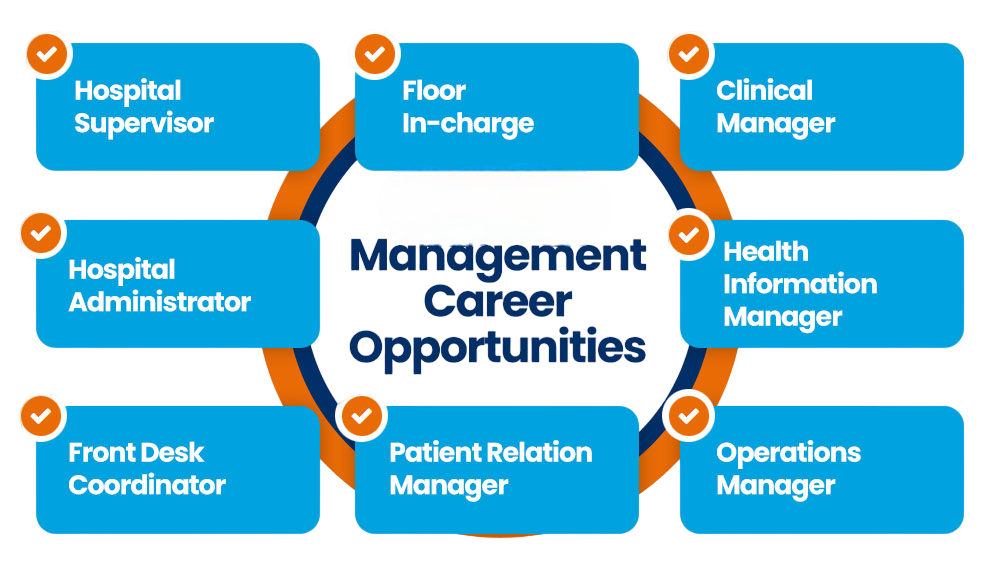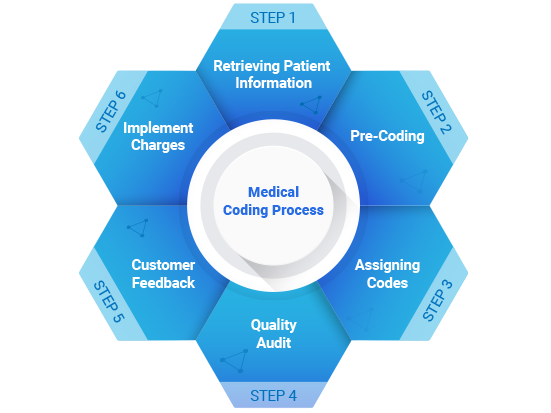
- Overview of Career Paths After BSc Nursing
- M.Sc. Nursing Specializations
- MBA in Healthcare Management
- PG Diploma in Critical Care
- Post-Basic B.Sc. Nursing
- Certificate Courses in Nursing
- Career in Clinical Research
- Scope in Public Health and Epidemiology
- Medical Coding Courses
- Opportunities in Hospital Administration
- Studying Abroad After BSc Nursing
- Conclusion
Overview of Career Paths After BSc Nursing
A Bachelor of Science (BSc) in Nursing opens a variety of career opportunities in the healthcare sector. Graduates can work in clinical settings, pursue higher education, or transition into administrative, research, or academic roles. This article provides an in-depth overview of career paths following a BSc in Nursing and explores specialization options, postgraduate studies, Softskills Training certifications, and international opportunities. With a Bachelor of Science in Nursing, graduates can begin working as staff nurses in clinics, hospitals, and community health centres, directly caring for patients in specialities like maternity, critical care, paediatrics, and geriatrics. Pursuing a Master of Science (MSc) in Nursing or other specialised postgraduate degrees can provide access to advanced practice positions such as Clinical Nurse Specialist, Nurse Practitioner, or Nurse Educator for individuals who wish to further their knowledge.
M.Sc. Nursing Specializations
An M.Sc. in Nursing is a popular choice for BSc Nursing graduates seeking advanced clinical knowledge or teaching positions. It offers several specializations that align with specific interests:
- Medical Surgical Nursing: Focuses on adult patient care in hospitals and clinics.
- Pediatric Nursing: Specialized care for infants, children, and adolescents.
- Psychiatric Nursing: Deals with mental health and psychiatric disorders.
- Obstetrics and Gynecology Nursing: Concentrates on women’s health, childbirth, and neonatal care.
- Community Health Nursing: Focuses on preventive care and health education at the community level.
An M.Sc. Nursing degree typically takes two years to complete and is a stepping stone to roles such as Nurse Educator, Clinical Nurse Specialist, or Nursing Administrator, emphasizing the importance of Understanding Leadership in advanced nursing practice.
MBA in Healthcare Management
An MBA in Healthcare Management is ideal for nurses looking to move into managerial or administrative roles within healthcare organizations. This program equips professionals with skills in hospital management, health policy, healthcare finance, and operations.

- Key benefits of this course:
- Understanding of healthcare systems and business principles.
- Eligibility for roles such as Hospital Administrator, Healthcare Consultant, and Medical Manager.
- Increased earning potential and career progression.
- Graduates can work in hospitals, insurance companies, pharmaceutical firms, and healthcare consultancies.
- Focus on ventilator management, cardiac life support, and trauma care.
- Clinical training in ICUs.
- High demand in multi-specialty hospitals and trauma centers.
- Career opportunities include Critical Care Nurse, ICU In-Charge, and Emergency Response Nurse.
- Enhanced job prospects and salary.
- Eligibility for postgraduate studies (like M.Sc. Nursing).
- Preparation for teaching and administrative roles.
- It bridges the gap between diploma education and advanced nursing practice.
- Certificate in Geriatric Nursing.
- Certificate in Neonatal Nursing.
- Certificate in Palliative Care.
- Certificate in Dialysis Technology.
- Certificate in Nursing Administration.
- Clinical Research Associate (CRA).
- Clinical Trial Coordinator.
- Data Manager.
- Pharmacovigilance Specialist.
- Public Health Nurse.
- Epidemiologist (with additional qualifications).
- Health Educator.
- Program Coordinator.
- Medical Coder – Translates healthcare diagnoses, treatments, and procedures into standardized medical codes for insurance and record-keeping purposes.
- Coding Auditor – Reviews and verifies medical coding accuracy to ensure compliance with healthcare regulations and maximize reimbursement.
- Billing Executive – Manages patient billing, prepares insurance claims, and ensures timely payment collection for healthcare services.
- Hospital Operations Manager
- Quality Control Officer
- Nursing Superintendent
- Healthcare Administrator
- Qualifying Exams: NCLEX-RN (USA/Canada), CBT and OSCE (UK), or relevant national exams.
- Language Tests: IELTS or TOEFL for English proficiency.
- Credential Evaluation: Through bodies like CGFNS, NMC, or ANMAC
- M.Sc. Nursing
- MPH
- Nurse Practitioner programs
- MBA in Healthcare
To Explore Aptitude and Reasoning in Depth, Check Out Our Comprehensive Aptitude and Reasoning Certification Training To Gain Insights From Our Experts!
PG Diploma in Critical Care
The Postgraduate Diploma in Critical Care is tailored for nurses who aim to work in intensive care units (ICUs) or emergency settings. This 1-year course enhances knowledge and practical skills in handling critical patients.
- Key highlights:
Post-Basic B.Sc. Nursing
The Post-Basic B.Sc. Nursing is designed for diploma (GNM) holders who want to upgrade their qualifications to a bachelor’s degree. This Diploma Course typically has a duration of two years.
- Benefits include:
Are You Interested in Learning More About Aptitude and reasoning ? Sign Up For Our Aptitude and Reasoning Certification Training Today!
Certificate Courses in Nursing
Certificate courses help nurses gain additional skills and specialize in specific areas. These short-term courses are usually 6 months to 1 year in duration. Popular options include:
These courses, including Softskills Training offer flexible learning options and can significantly enhance employability and specialization.
Career in Clinical Research
Clinical research is a growing field that involves studying the safety and efficacy of medications and treatment protocols. BSc Nursing graduates can pursue roles such as:
To enter this field, candidates can take specialized training or diploma courses in clinical research. This career path often involves collaboration with pharmaceutical companies, research organizations, and hospitals.
Scope in Public Health and Epidemiology
Public health nursing and epidemiology focus on preventing diseases and promoting health at the population level. Nurses in this field often work with government agencies, NGOs, and international health organizations. While primarily healthcare-focused, interdisciplinary skills can lead to roles in emerging fields, such as Electric Vehicle Engineer for those interested in technology and public health intersections. Roles include: Roles include:
Advanced degrees like Master of Public Health (MPH) can provide deeper insights and open doors to international careers in global health initiatives.
Medical Coding Courses
Medical coding involves converting patient records into standardized codes used for billing and documentation. It is a non-clinical career option suitable for nurses who prefer desk jobs. Courses in medical coding typically last 3–6 months and cover ICD-10, CPT, and HCPCS coding systems. Professionals can also pursue related fields like MSC Data Science to enhance analytical and data management skills. Career roles include:

Organizations like AAPC and AHIMA offer certifications that boost credibility and job prospects, especially in outsourcing firms and hospitals.
Are You Considering Pursuing a Master’s Degree in Aptitude? Enroll in the Aptitude and reasoning Masters Program Training Course Today!
Opportunities in Hospital Administration
Nurses with administrative flair can explore careers in hospital administration. Courses like PG Diploma or MBA in Hospital Management equip nurses with skills in operations, finance, HR, and policy-making, also opening doors to Career Options in Commerce for those interested in management and business aspects of healthcare.
- Career roles:
This path is suitable for those interested in managing healthcare services rather than providing direct patient care.
Preparing for Aptitude and reasoning Job? Have a Look at Our Blog on Aptitude and reasoning training To Acte Your Interview!
Studying Abroad After BSc Nursing
Many BSc Nursing graduates aspire to pursue education or work abroad, especially in countries like the USA, UK, Canada, Australia, and New Zealand. To explore global Career Opportunities after BSC Nursing, steps to take include:
Higher education options abroad:
Working abroad offers better pay, global exposure, and career growth.
Conclusion
BSc Nursing serves as a strong foundation for diverse career paths in healthcare. Whether you want to specialize, teach, manage, or explore global opportunities, there is a route tailored to your aspirations. Evaluate your strengths, explore options, pursue Softskills Training and choose a path that aligns with your professional goals and personal passions. Furthermore, integrating clinical experience with further credentials, licences, or training in soft skills can greatly improve job opportunities and provide access to leadership and specialised positions. Participating in professional societies, attending workshops, and networking with healthcare professionals can all offer insightful information and chances for career progression.





